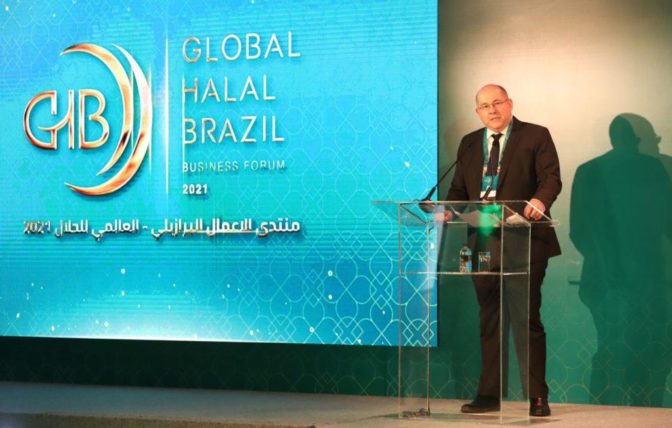
 "
"

 "
"

AhlulBayt News Agency (ABNA): Brazil is becoming increasingly sensitive to the needs of Muslim tourists visiting the country, with the goal of providing a memorable experience while respecting their culture. The so-called halal tourism has gotten a lot of attention from the government and the tourism industry.
Embratur (Brazilian Tourist Board) took part in the first Global Halal Brazil Business Forum, which was organized by the rab-Brasileira Chamber of Commerce and the Federation of Muslim Associations of Brazil (Fambras Halal).
Embratur’s Manager, Claudine Bichara, attended the discussions about the lifestyle of the Islamic population, known for its high levels of excellence and added value. “Halal products and services cover a wide range of sectors and represent a great opportunity for Brazilian companies,” said Bichara.
The halal market is worth $4.8 trillion and respects the Islamic population’s way of life. This segment includes approximately 1.9 billion consumers (24.5 percent of the global population), primarily from Arab, European, and Asian countries such as Indonesia, India, and Malaysia.
When working with this type of tourist, issues such as the proper time for prayers, hygiene requests, the need to be directed to Makkah when praying, and fasting during Ramadan, among other things, are taken into account. Praying carpets and no alcohol in the minibar are also features of Halal-certified hotels.
“These are details that do not generate great adaptations for those who receive, but that make all the difference for Muslims,” Bichara said.

Within this scenario of possibilities, the city of Foz do Iguaçu in the state of Paraná is expected to be the first in Latin America to receive a halal certificate. The certification is still being worked out, but it will indicate that the city is welcoming to Arab-Muslims. The hospitality, services, and gastronomy sectors will see the most significant changes.
Among these procedures are the availability of reserved and well-signposted Makkah spaces in hotels, as well as the provision of a copy of the Quran in the accommodations.
There are also food-related issues to consider. Meat served to Arabs must come from animals slaughtered in certified slaughterhouses in accordance with halal standards. Pork consumption is also forbidden.
Aside from protocol meetings, the Omar Ibn Khatab Mosque is one of Foz do Iguaçu’s most popular tourist attractions. It is Latin America’s largest mosque.